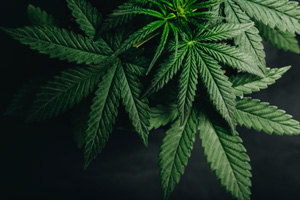
Underaged marijuana use can have serious legal consequences that extend far beyond a simple reprimand. When a minor is caught with marijuana, they may face criminal charges that could impact their future. Understanding these consequences is crucial for minors and their guardians to navigate the legal system effectively. In Pennsylvania, a minor caught with marijuana can face fines, community service, and even probation. Moreover, the long-term effects of having a drug charge on their record can affect educational and employment opportunities.
At Rubin, Glickman, Steinberg & Gifford, P.C., we are dedicated to helping those facing minor drug charges. Our law firm understands the complexities of drug laws and the importance of protecting a minor’s future. Our team is prepared to guide you through the legal process and work toward minimizing the impact of these charges on your child’s life.
Understanding the Legal Consequences
When a minor is charged with marijuana possession, the penalties can vary depending on the amount of marijuana and the circumstances of the case. For first-time offenders, penalties might include fines and mandatory drug education programs. However, repeated offenses can lead to more severe consequences such as probation or even juvenile detention. The severity of the punishment often depends on the minor’s prior record and the specifics of the offense.
Possession of a small amount of marijuana for personal use is generally considered a misdemeanor. This can lead to fines up to $500 and a potential jail sentence of up to 30 days. However, alternatives such as diversion programs are often available for first-time offenders, which focus on rehabilitation rather than punishment. These programs can include drug counseling and community service, offering a way to avoid a permanent criminal record.
Beyond the immediate legal penalties, a drug charge can have lasting impacts. It can affect a minor’s ability to get into colleges, obtain scholarships, or even qualify for certain jobs. This underscores the importance of addressing the charges promptly and effectively.
The Impact on Education and Employment
A drug charge on a minor’s record can significantly impact their educational opportunities. Many colleges and universities conduct background checks as part of their admissions process. A conviction for drug possession can lead to denial of admission or loss of scholarships. Additionally, some schools have policies that could lead to suspension or expulsion if a student is found guilty of a drug-related offense.
Employment opportunities can also be affected by a drug charge. Many employers require background checks as part of the hiring process. A conviction, even as a minor, can disqualify a candidate from certain jobs, particularly those that require a clean criminal record or involve security clearances. This can limit a young person’s career prospects significantly.
It is also important to consider the social stigma associated with drug charges. Friends, family, and peers may view the minor differently, leading to social isolation and emotional distress. The psychological impact can be profound, affecting the minor’s self-esteem and overall well-being.
Legal Defenses and Rights
When a minor is charged with marijuana possession, they have legal rights that must be protected. It is crucial to understand the minor is entitled to a fair trial and legal representation. Various defenses can be employed, depending on the circumstances of the arrest and the evidence presented. For instance, challenging the legality of the search and seizure can be a valid defense if the minor’s rights were violated during the arrest.
Another defense could involve questioning the accuracy of the evidence. This can include ensuring the substance in question is indeed marijuana and verifying the proper handling of the evidence by law enforcement. Additionally, if the minor was not in actual possession of the drug or was unaware of its presence, these factors can also be used in their defense.
Diversion programs offer an alternative to traditional punishment, focusing on rehabilitation. These programs are designed to educate minors about the dangers of drug use and provide them with the tools to avoid future offenses. Successful completion of a diversion program can lead to the dismissal of charges, allowing the minor to avoid a permanent criminal record.
How Can Rubin, Glickman, Steinberg & Gifford, P.C. Help?
Rubin, Glickman, Steinberg & Gifford, P.C. is committed to providing comprehensive legal support to minors facing drug charges. Our attorneys have a deep understanding of Pennsylvania’s drug laws and are skilled in developing effective defense strategies. We recognize the importance of protecting a minor’s future and work tirelessly to minimize the impact of drug charges on their lives.
Contact us today to discuss how we can assist with your case. Our team is ready to provide the legal guidance and representation you need. Call (215) 822-7575 or visit our contact form to schedule a consultation.

Rubin, Glickman, Steinberg & Gifford P.C.
Pennsylvania Attorney's
September 25, 2024









